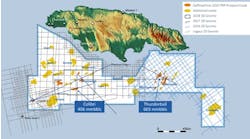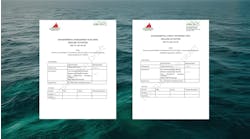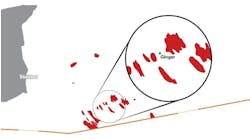Collaborative research assesses future needs of UK decommissioning sector
Decom North Sea
Decommissioning is a critical stage in the life of an offshore oil and gas installation. In UK waters alone, the projected spend on decommissioning over the next 25 years is $69.6 billion (£40.6 billion).
In recent times, sustained high oil and gas prices, improved recovery technologies, and fiscal uncertainty have all played their part in deferringUK decommissioning projects. Given that to date only 57 structures are reported to be either decommissioned or in the process of being decommissioned, the UK continental shelf (UKCS) sector can still be considered embryonic.
However, aging structures inevitably reach the end of their economic lifespan as production rates decline. The government's recently announced tax relief deeds finally provide the clarity investors have long been seeking over decommissioning decisions, so a maturing of the UK sector seems imminent.
The scale of the projected spend indicates that it is essential for cross-sector understanding, collaboration and knowledge-sharing to ensure that the industry is fully prepared for – and will make the most of – the decommissioning era when it fully arrives.
Decom North Sea was established to do exactly that, representing the North Sea's oil and gas decommissioning industry and with 230 members from the full range of companies and organizations active in the sector. It facilitates the development of models, guidelines, and templates aimed at improving industry efficiency, containing costs, encouraging economic benefit, and maximizing residual value.
Against this backdrop, Decom North Sea collaborated with Scottish Enterprise and Accenture to produce the most detailed assessment of the current state of the sector. The research examined key aspects of decommissioning in the coming years and made what is believed to be the first independent assessment of current industry capability. In light of the recent large-scale investments in new capital developments on the UKCS, sustained levels of opex, a ramping up in offshore wind developments, and growing activity in decommissioning, the report unsurprisingly highlights areas where capability is likely to be tight. Examples include management and engineering staff, drilling rigs for wells (P&A), and specialist vessels, including heavy lift.
The research was designed to obtain perceptions about the industry's state of readiness. It identified some deviations between supplier capability and what the industry actually needs. The discrepancy is smallest for cleaning and decommissioning, disconnection and disposal, and greatest in terms of well abandonment, infrastructure removal, and continuing liability.
Decommissioning spending across the UKCS will vary by region, with the northern and central sectors of the North Sea incurring considerably higher costs per asset than the southern sector. This is due to a range of factors that include heavier structure weights, greater water depths, longer distances from shore, and more hostile weather. With operators generally undertaking their first decommissioning project, different strategies and contracting approaches are set to emerge which will also impact costs from one decommissioning project to the next.
The different phases of the decommissioning value chain bring varying degrees of complexity and costs, with the well abandonment phase forecast to account for more than 40% of total costs, while the suspension cold phase accounts for less than 1%
The research indicates an average gap of 35% between actual and desired capability across the supply chain, but the general expectation is that the impact could be reduced if action were taken in areas such as removal, disposal, well abandonment, cleaning, and decommissioning.
A major concern is the demand on people resources. The North Sea supply chain is tackling major new development projects such asBP's Clair Ridge and Statoil's Mariner, in the far north, with other large-scale investments offshore Norway. Contractors and service specialists currently enjoy a choice of market sectors to pursue. Decommissioning must therefore be portrayed as an attractive long-term business opportunity if the industry is going to build the capability, capacity, and efficiency required for the activity ahead.
One way to promote the career and business opportunities highlighted in the research would be to encourage training and transfer of skills and capabilities from other sectors, such as nuclear decommissioning, the marine and salvage industries, and to re-train ex-military personnel. Decom North Sea is exploring this initiative with partner agencies.
Bundling of services is also critical. Operational costs can be reduced through synergies in areas such as project management, logistics, HSE management, and even back-office functions. Collaborating across different skills pools may also act as a catalyst for further innovation as suppliers share techniques, processes, and learnings.
A related issue is the ease of doing business. Reducing the cost of decommissioning, encouraging innovation, and improving interface management will help operators to move forward more confidently with their decommissioning projects, helping to increase activity and to generate some much needed continuity in the sector. If smaller niche suppliers can be convinced of the benefits in forming alliances, they could share risks and bid for work with less exposure. There would also be scope for more innovative contracting models – of interest to operators and contractors alike.
Decom North Sea spearheads a number of initiatives to support the decommissioning industry, including a streamlined template for the submission of the decommissioning program. It produced the industry-standard template following collaboration with the Department of Energy & Climate Change (DECC) and a working group of member companies. The template is designed to help the industry secure quicker authorization from DECC of its decommissioning plans.
From operators to small supply companies, each member or invited third party has something valuable to contribute to these initiatives. It is our aim to bring them together to discuss the seemingly infinite opportunities surrounding the sector, and to share news on technologies and innovations that could address these opportunities and the associated challenges.




